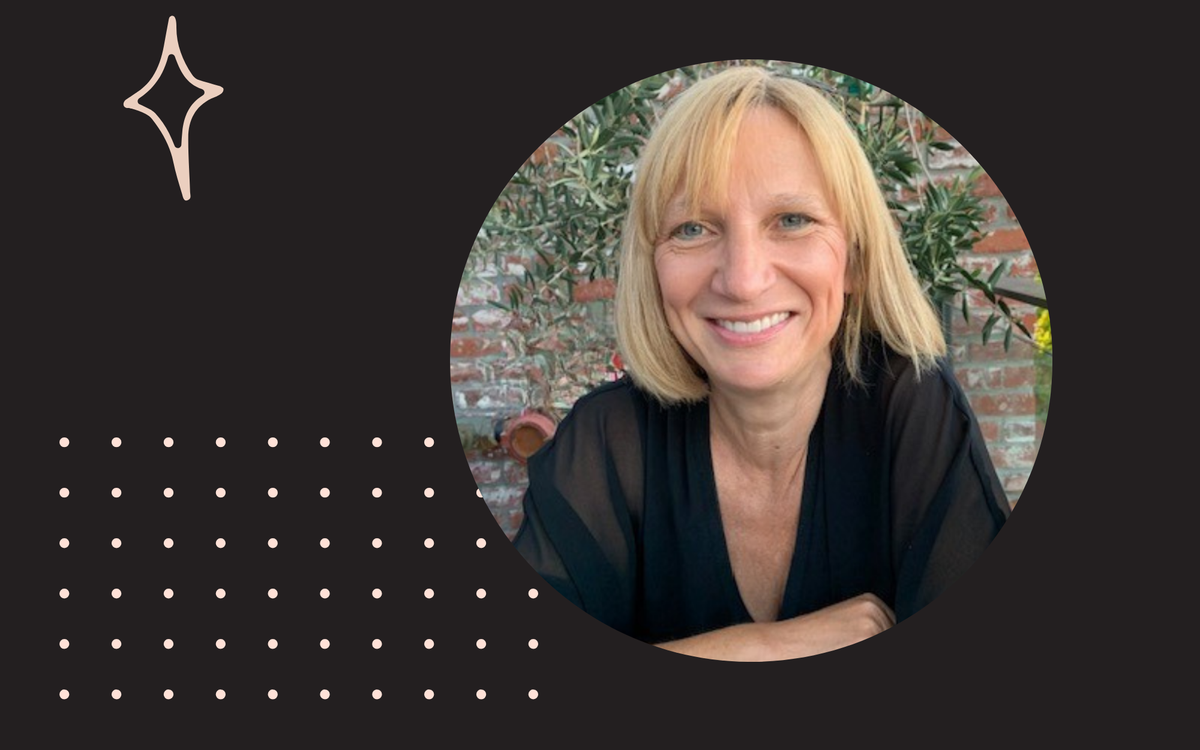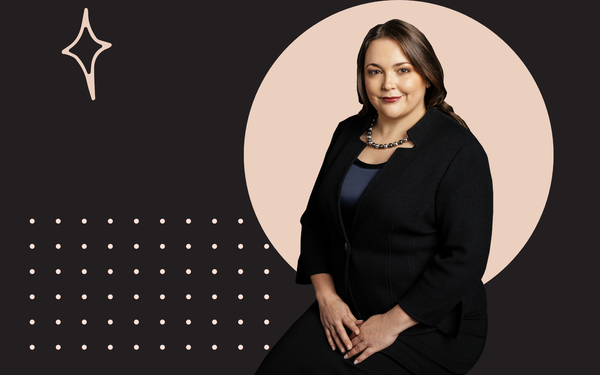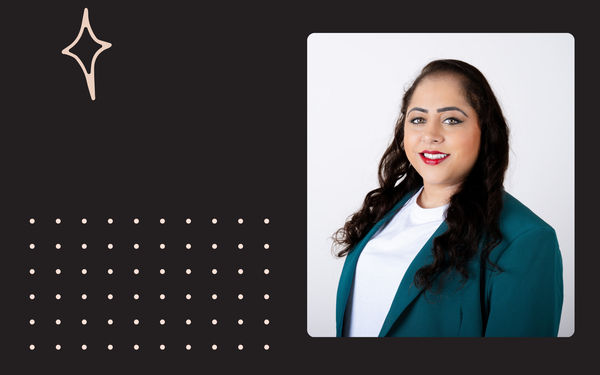From Global Beauty to Holistic Wellness: Virginie Descamps Champions Cultural Wisdom and Gender Equality in Health Innovation

In the rapidly evolving wellness landscape, few leaders bring the unique perspective of having launched premium cosmetic brands across 60 countries while championing gender equality and authentic cultural approaches to health. Virginie Descamps, Chief Marketing Officer at Alurx, represents a new generation of wellness executives who understand that true health transformation requires more than trendy products—it demands cultural sensitivity, scientific rigor, and inclusive leadership.
At Alurx, founded by former restaurant industry CEO Julia Stewart, Virginie helps lead the development of personalized wellness solutions through their groundbreaking app that addresses sleep, nutrition, and stress management. The platform, guided by the Alurx Medical & Expert Council (AMEC), provides expert assessments and customized daily activities to help users build lasting healthy habits.
What sets Virginie apart is her commitment to incorporating diverse cultural wisdom into modern wellness technology. Her international experience—from studying Korean multi-step beauty rituals to working with Dr. Perricone on nutraceuticals—has shaped her understanding that effective wellness solutions must honor traditional practices while leveraging cutting-edge science. As an advocate for gender equality and women's health, she's pioneered the creation of an all-women council of physicians and wellness experts and established a "Wellness Voices" circle to ensure diverse female perspectives drive product development.
In this candid conversation, Virginie shares her pivotal transition from traditional cosmetics to holistic wellness, reveals how cultural insights from around the world inform modern health practices, and discusses the future of AI-powered wellness coaching through Alurx's upcoming Alura AI platform—a voice-activated wellness coach designed to make personalized health guidance accessible to all while maintaining the human connection essential for lasting transformation.
As someone who has formulated and launched premium cosmetic brands in over 60 countries and now serves as CMO at Alurx, what pivotal moment led you to transition from traditional beauty into holistic wellness?
First, it was a gradual awareness that grew during my travels. I discovered that culture, traditions passed down from generations, and diet had a great impact on skin health.
In Korea, I studied their multi-step beauty routines. They are based on rituals that are central to your wellbeing and reinforced by social interactions such as gathering in spas/springs that provide a respite from a very hectic urban lifestyle. I adopted their face cleansing rituals and evening skincare routines before it was a trend.
In Europe, nutrition is also closely associated with skin health and I was always mindful of the skin/gut connection. But I made the pivot from traditional cosmetics to wellness when I met Dr. Perricone and worked on the global expansion of his nutraceuticals, Perricone MD. I learned a great deal from him, more specifically about the connection between diet, inflammation, and aging.
How has your international experience shaped your understanding of different cultural approaches to health?
Our understanding of health is shaped by our upbringing, our education system, our culture, our socio-economic background and by the environment we live in, especially our exposure to pollution. One of the purposes of my international travels was to consult with local research and development teams and retail consultants before formulating new products, creating education modules and launching brands in a new market. My two main takeaways are that: 1. some ingrained beliefs have damaging effects and can only be dispelled by rigorous education. An example is skin whitening, which is associated with long-held beauty standards in many countries and leads to dangerous practices. 2. Traveling to so-called "emerging countries," I learned the importance of collective wisdom, community and natural remedies and met people who thrived even though they had less access to "state-of-the-art" medicine. It deepened my understanding of all the factors that affect our well-being and overall health.
Given your advocacy for gender equality and women's health, how do you ensure wellness brands authentically serve women's diverse needs rather than capitalizing on trends? What advice would you give other women entrepreneurs building in the wellness space?
The cosmetic industry always offered great economic opportunities for women of diverse backgrounds but the barriers to hiring, promoting and supporting women have persisted, along with the beauty stereotypes it promotes. Likewise, the wellness industry is challenged to embrace women in leadership roles, and to serve them, avoiding the gender bias pervasive in healthcare. Wellness should not focus on making us slimmer or more productive while we juggle work, caretaking, and struggle to make space for self-care. Trends are commercial in nature and perpetuate the illusion that a magic pill can make us feel and look great. Better health takes education and adjustments to our modern lifestyle. That's where habit-forming apps can be helpful in promoting healthier behaviors. There is a real need in wellness to focus back on basics: sleep, nutrition and mindfulness. Building a wellness brand, I prioritize collaborating with women whose perspectives are often ignored, such as nurses, studying and learning from experts and advocates who are pioneering a more holistic and inclusive approach to health. At Alurx, we recruited an all-women council of physicians and wellness experts, the AMEC. I also created a circle of "Wellness Voices" to include a diverse panel of women. Today, I combine their knowledge with the latest AI technology to make it accessible to all.
With Alurx's wellness app providing custom programs and expert assessments, where do you see the intersection of technology and wellness headed? How can we leverage digital tools to make wellness accessible while maintaining human connection for lasting health transformation?
These two questions are at the core of today's challenges in HealthTech.
We are building a new version of our Alurx Wellness app, code name Alura AI. Alura AI is a voice-activated wellness coach that engages in human-like conversation to identify your concerns, recommend a personalized daily wellness plan, monitor your progress, and motivate you to acquire new healthy habits. Alura AI enables healthier habit-building across all dimensions of wellness, including environmental and social wellness. AI technology is a great tool to build interactive features such as journaling, to analyze data and deliver personal solutions. We ensure that the coaching advice is rooted in science and we integrate the input of our Alurx Medical & Expert Council in our tech build.
HealthTech facilitates access to services and should reduce the cost of care significantly. The same way telehealth widened access to mental health practitioners, we envision that wellness apps powered by AI will help create connections beyond your device and empower everyone to make healthier lifestyle choices. Alura AI will allow its users to share their experience with others in a closed network, if they so wish, and to dial in wellness practitioners for private sessions. The more we take charge of our own health by adopting healthier habits, the more we influence the healthcare ecosystem to focus on prevention.
Are you a woman leader with an inspiring journey to tell? Founded by Women is on a mission to elevate and amplify the voices of women making an impact.
If you're breaking barriers, driving change, or paving the way for others, we’d love to feature your story. Get in touch with us today!
👉 hi@foundedbywomen.org


